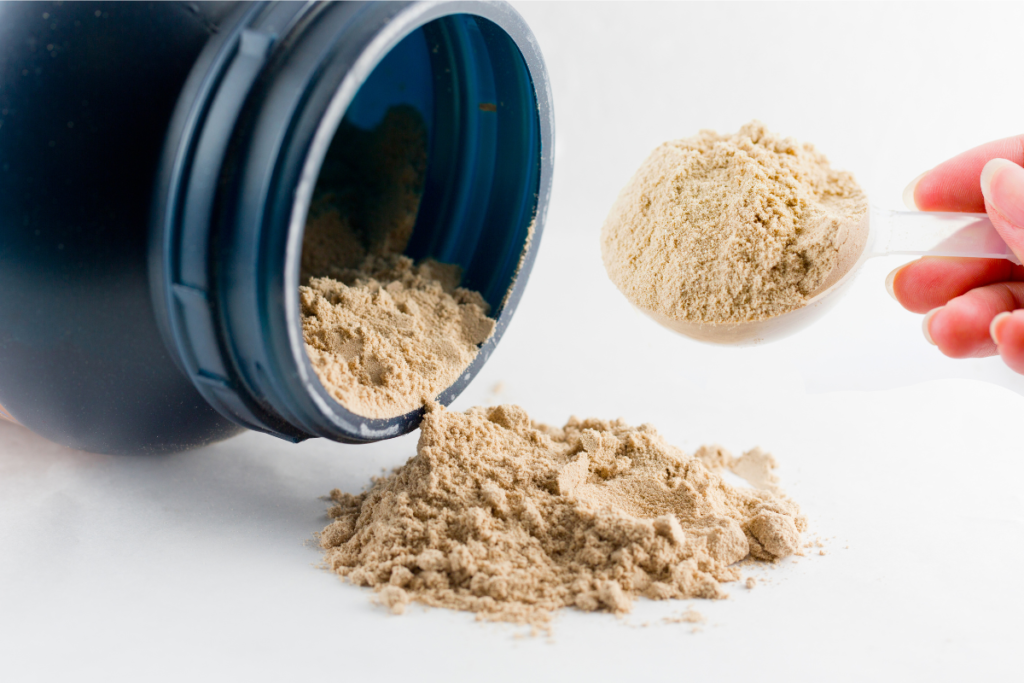Protein has become increasingly well-known as a must-have component for athletes, fitness fanatics, and anyone trying to get healthier. However, controversies and safety issues have emerged with the development of protein powders and supplements, particularly in India. Are protein powders advantageous or dangerous? Here is an explanation of the health benefits of protein, the controversy surrounding protein powders, and the findings of scientific research regarding their safety.
The Importance of Protein: Beyond Muscle Building
Protein is an essential macronutrient that supports:
● Tissue Repair and Growth: Crucial for muscle repair and recovery.
● Immune Function: Produces antibodies to fight infections.
● Hormone Regulation: This is key to producing insulin, growth hormone, and other regulatory proteins.
● Enzymatic reactions: Most enzymes in the body are proteins.
The Recommended Daily Allowance (RDA) for protein varies:
● Adults: 0.8 g per kilogram of body weight.
● Athletes: 1.2–2 g per kilogram.
● Pregnant or lactating women: 1.1–1.3 g per kilogram.
The Controversy: Protein Powders Under the Microscope
Fake and Unsafe Protein Powders in India
The need for protein supplements has increased due to India’s booming fitness sector. On the other hand, fake protein powders are a major problem. Several protein powders on the market contain harmful ingredients, heavy metals, and even steroids, according to a research by the Food Safety and Standards Authority of India (FSSAI). Risks from these substances include hormone abnormalities, liver poisoning, and kidney damage.
Debate Over Necessity
Critics argue that most people in India do not need protein supplements if they consume a balanced diet. However, busy lifestyles, vegetarian diets, and inadequate protein intake among Indians (average intake of 50g/day compared to the recommended 60-100g/day) have made protein powders a convenient option.
Health Risks of Excessive Protein Supplement Use
Excessive reliance on protein powders has been linked to:
● Cardiovascular Issues: Because high-protein diets, especially those using powders, lack the healthy elements present in entire foods, they may raise the risk of heart disease.
● Neurological Concerns: Excessive protein intake might alter mental function by increasing blood ammonia levels.
Protein Supplements and Chronic Conditions
1. Cardiological Impact
● A 2020 study in the Journal of the American Heart Association found that high-protein diets, particularly animal-derived proteins common in powders, were linked to increased arterial stiffness and higher risks of cardiovascular events.
2. Neurological Impact
● Research published in Frontiers in Nutrition (2019) highlighted that protein overconsumption could disrupt neurotransmitter balance, potentially affecting mood and cognition.
3. Kidney and Liver Function
● Individuals with pre-existing kidney or liver conditions are at risk of exacerbated issues due to the high nitrogen load from excess protein.
Are protein powders safe in India?
The safety of protein powders in India varies significantly depending on the brand and source.
● Certified Brands: Look for products tested by third-party agencies like FSSAI, NSF International, or Informed Choice.
● Counterfeit Products: Avoid powders sold without proper labelling or certifications.
● Additives: Many powders contain artificial flavours, sugar, or preservatives that could negate the health benefits.
Do You Need Protein Powders?
For people who can’t get enough protein from their diet, protein powders are a handy alternative. They can benefit:
● Athletes needing rapid recovery.
● Vegetarians or vegans who may lack complete protein sources.
● Busy individuals with limited time to prepare protein-rich meals.
However, they should supplement—not replace—a balanced diet.
Best Protein Sources
Whole Food Sources
● Animal-Based: Eggs, lean meats, fish, and dairy.
● Plant-Based: Lentils, quinoa, tofu, and nuts.
Protein Powders
● Whey Protein: Easily digestible, contains all essential amino acids.
● Plant-Based Protein: Made from peas, rice, or hemp, suitable for vegans.
● Casein Protein: Slow-digesting, ideal for overnight muscle repair.
FAQs About Protein Powders and Safety
Are protein powders necessary for everyone?
Can protein powders harm your kidneys?
How do I choose a safe protein powder?
Are plant-based powders as effective as whey?
Is there a risk of heavy metals in protein powders?
How HealthPil Can Help:
At HealthPil, we prioritise your health and safety. Our experts can:
● It helps you determine your daily protein needs based on your lifestyle.
● Guide you in selecting safe, certified protein supplements.
● Provide personalised diet plans to meet your nutritional goals through natural foods and supplements.
With HealthPil’s teleconsultation services, you can connect with experienced dietitians and fitness specialists who ensure your choices are science-backed and safe.
Disclaimer:
This article is for informational purposes only and is not a substitute for medical advice. Always consult a healthcare provider before starting protein supplements, especially if you have pre-existing conditions.
Conclusion:
While they can be a useful addition to your diet, protein powders are not risk-free. Whole foods continue to be the best and safest sources of protein, but for those with higher requirements, verified protein powders can be a convenient option. With the right precautions and guidance, you can take advantage of the power of protein while avoiding the drawbacks. Let HealthPil provide you with expert, personal guidance on your journey to better health.

